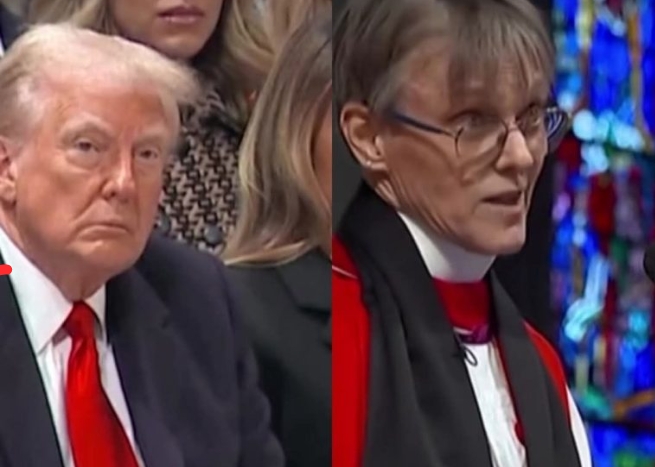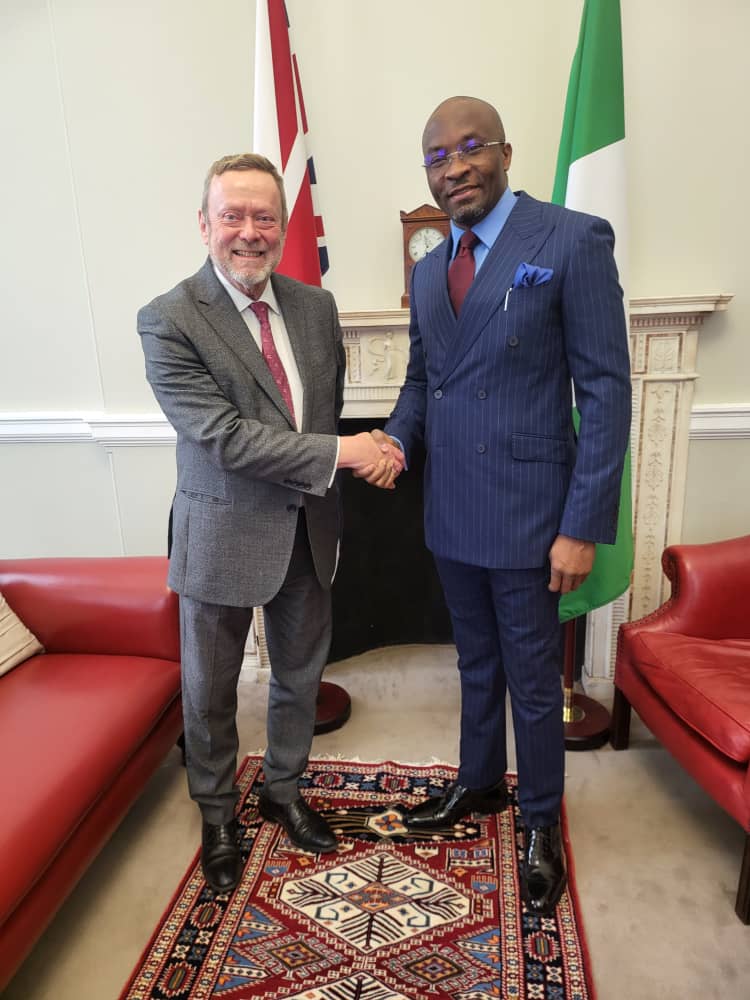News
Tinubu sends Bill to NASS to consider increase in VAT from 7.5% to 10% by 2025

The National Assembly is considering a bill proposing an increase in the value-added tax (VAT) from 7.5 percent to 10 percent.
VAT refers to a consumption tax on goods and services levied at each stage of the supply chain where value is added.
In the executive bill the national assembly is seeking to raise the tax rate to 10 percent by 2025.
The legislature also intends to increase the VAT to 12.5 percent by 2026 through 2029, according to the document.
VAT shall be charged on the value of all taxable supplies at the following rates (a) 2025 year of assessment 10%; (b) 2026, 2027 2028 and 2029 years of assessment 12.5% (c) 2030 year of assessment and thereafter 15%,” the document reads.
On May 8, Taiwo Oyedele, chairman of the presidential committee on fiscal policy and tax reforms, had said the VAT rate needs to be increased.
Reacting to the recommendation on September 8, Atiku Abubakar, former vice-president criticised the proposed VAT hike, describing it as a “regressive and punitive policy”.
However, Wale Edun, minister of finance, on September 9, said the VAT rate has not been unchanged.
In February 2021, the International Monetary Fund (IMF) had advised the federal government to raise the VAT rate to at least 10 percent by 2022.
CIT TO BE REDUCED TO 27.5% BY 2025
Meanwhile, the bill also proposes a reduction in the corporate income tax (CIT) to 27.5 percent by 2025 — down from 30 percent — and a further cut to 25 percent by 2026.
Companies with less than N20 million turnover are exempted from paying the CIT, according to the bill.
Tax shall be levied, for each year of assessment in respect of total profits of every company, in the case of; (a) a small company, at zero percent; and (b) any other company, at the rate of-(i) 27.5% in 2025 year of assessment, and(ii) 25% from 2026 year of assessment,” the document added.
“Notwithstanding any provision of this Act or any other enactment, where, in any year of assessment, the effective tax rate of a company is less than 15%, such company shall recompute and pay an additional tax that makes its effective tax rate equal to 15%.
“The provisions of this section shall apply to (a) a company that is a constituent entity of an MNE group; and (b) any other company with an aggregate turnover of N20,000,000,000.00 and above in the relevant year of assessment.
“The companies covered under this section and the determination of the additional tax payable shall be in accordance with regulations issued by the Service.”
On June 4, Oyedele had said the presidential committee on fiscal policy and tax reforms proposed a reduction of the CIT by 5 percent.
He said the tax rate should drop from 30 percent to 25 percent to encourage businesses and investors.
Credit source: Cable excluding headline
News
Trump Replies Episcopal Bishop’s Call for Mercy on LGBTQ+ Community and Migrant Workers

By Kayode Sanni-Arewa
During the inaugural prayer service, Right Reverend Mariann Budde, the Episcopal Bishop of Washington, delivered a poignant message urging President Donald Trump to extend mercy to the LGBTQ+ community and undocumented migrant workers.
Her powerful appeal was made in front of a congregation gathered for the historic event, calling on the president to embrace compassion and understanding toward marginalized groups.
Following the service, President Trump was asked about the sermon and the bishop’s remarks.
In a brief interaction with the press, the president remarked that he did not believe the service had been “a good service,” without further elaborating on his stance.
Bishop Budde’s remarks have sparked a range of reactions, with advocates for LGBTQ+ rights and immigrant communities expressing hope that her call would resonate with the president, while others have criticized the president’s response.
The appeal for mercy and inclusion comes as the new administration begins its term, and its stance on issues of social justice and human rights remains closely watched.
News
Inflation, Rising Costs Behind 50% Telecom Tariff Increase – Minister

…FG to invest ₦6bn in fibre optic expansion
By Gloria Ikibah
The Minister of Communication, Innovation, and Digital Economy, Dr. Bosun Tijani, has attributed the recent 50 percent increase in telecommunication tariffs to inflation and rising operational costs.
The Minister disclosed this during the 2025 budget defense session held by the joint House of Representatives and Senate Committees on Communication, on Tuesday in Abuja.
Explaining the rationale behind the tariff hike, Dr. Tijani stated that the move aligns with broader economic trends where increased tariffs lead to higher consumer prices due to added costs on imported goods.
The Minister also revealed plans by the Federal Government to invest ₦6 billion in the deployment of 90,000 kilometers of fiber optic cables, increasing Nigeria’s current coverage from 35,000 kilometers to 125,000 kilometers, and he described this initiative as a critical step towards boosting communication infrastructure and fostering growth in key sectors of the economy.
“Tariffs act as a sales tax, causing a one-off price increase rather than sustained inflation.
“Outside of South Africa and maybe Egypt or Tunisia, many African countries face a significant deficit in fiber optic cable coverage.
“This is going to become a big business. We want Nigerian companies not only to lay cables within Nigeria but also to provide these services for neighboring countries. And we want our people to be the workforce driving this transformation,” he said.
Dr. Tijani who emphasised the importance of communication infrastructure in ensuring security and economic development, highlighted the historical reliance on private investment for telecommunications infrastructure, which has often prioritized profitable urban areas over rural communities.
“Private companies only invest where they see potential returns.
“They use tools like night-time satellite data to identify economic activity, represented by lights, and focus their investments in those areas. This has left many underserved regions without proper infrastructure. Addressing this disparity is a priority for us,” he explained.
The Minister, however, lamented the inadequate funding of the Ministry, which he said hampers its ability to fulfill its mandate effectively.
“The Ministry is underfunded compared to agencies like the NCC. We lack the necessary resources and software to track revenue-generating activities efficiently. With better funding, the Ministry could generate significantly more revenue and enhance its impact,” he said.
In his remarks, Senator Shuaib Salisu, Co-Chairman of the Senate Committee on Communication, acknowledged the critical contributions of the communication sector to Nigeria’s economic growth. He called for a review of the Ministry’s 2025 proposed budget to ensure it is adequately equipped to deliver on its mandate.
Following discussions, the Committee adopted a motion urging the Committees on Appropriation to consider an upward revision of the Ministry’s budget for 2025.
News
Kalu Calls On UK Govt to Support Nigeria’s War Against Corruption

…praised diplomatic ties between the two countries
By Gloria Ikibah
The Deputy Speaker of the House of Representatives, Rep. Benjamin Kalu, has called on the government of United Kingdom (UK) to support Nigeria’s fight against corruption.
The Deputy Speaker made the call during his speech in an event tagged “UK-Nigeria Collaboration: A Parliamentary Strategic Dialogue” which attracted the presence of the Deputy Leader of the British House of Lords, Rt. Hon. Lord Collins among other members of parliament from Nigeria and UK in London on Wednesday.
Kalu emphasized the importance of collaboration between the two countries in tackling corruption amongst other challenges.
He commended the diplomatic ties between Nigeria and the United Kingdom, highlighting the potential for deepened economic relationships.
Referencing the partnership between Nigeria and the UK as a testament to shared values and mutual interests, Kalu added that by deepening collaboration across these sectors, both countries will unlock the opportunities for sustainable growth and development.
He said: “The UK-Nigeria Strategic Partnership establishes a comprehensive framework for deepening bilateral relations and achieving shared objectives. This collaboration spans six pillars: Growth and Jobs: Through the Enhanced Trade and Investment Partnership (ETIP), both nations will drive mutual economic growth by addressing market barriers, boosting two-way trade, and fostering sustainable investments in manufacturing, agriculture, and energy.
“Both nations commit to facilitating safe migration, tackling visa abuse, and operationalizing prisoner transfer agreements while advancing reforms in global financial systems.
“I wish to call on the UK Government to intensify its efforts towards supporting Nigeria’s war against corruption in all its facets. One of the ways the UK can support this fight is to ease the process of repatriation of monies seized from Nigerian officials that are trapped in the UK financial system. Incidentally, I am here with the Chairman of the Nigerian Parliament Committee on Financial Crimes and he will be happy to continue the conversation with relevant officials.
“Nigeria seeks the UK’s continued support in recovering illicit funds. Enhanced collaboration should focus on: Setting up mechanisms to curb illicit financial flows. Strengthening institutions to combat corruption. Facilitating asset recovery processes through bilateral agreements”.
Kalu who is the Chairman, Nigeria’s House Committee on Constitution Review and an advocate for political inclusion also called on the UK’s Foreign, Commonwealth & Development Office (FCDO) to support the work of the panel.
“As Chair of the House Committee on Constitution Review, I acknowledge the monumental task of refining Nigeria’s constitutional framework to reflect the evolving needs of its people. Key issues under deliberation—such as the creation of special status seats for women in legislative assemblies, the enactment of more gendersensitive legislation, and the potential introduction of sub-national policing—are pivotal to fostering inclusive governance and addressing the nation’s security challenges.
“Thus, I implore the UK’s Foreign, Commonwealth & Development Office (FCDO) to extend tailored support to the Committee’s critical work. By providing technical assistance, research expertise, and capacity-building programs, the FCDO can help ensure that these constitutional reforms are comprehensive, evidence-based, and aligned with international best practices.
“Such support would not only strengthen Nigeria’s democratic institutions but also reinforce shared values of equity, justice, and security, which underpin the UK-Nigeria Strategic Partnership. This collaboration would demonstrate a profound commitment to empowering marginalized groups, ensuring safer communities, and fortifying Nigeria’s legislative framework for future generations”, he said.
-

 Foreign19 hours ago
Foreign19 hours agoTrump fires Fagan, first woman to lead US military service
-

 News19 hours ago
News19 hours agoNotorious bandit Bello Turji frees all captives as military plan assault
-

 News19 hours ago
News19 hours agoTinubu Gov’t Approves Construction Of New Refinery In Nigeria
-

 Economy19 hours ago
Economy19 hours agoUS oil imports from Nigeria to drop as Trump plans energy emergency order
-

 Foreign19 hours ago
Foreign19 hours agoTrump vows to ‘tariff and tax’ foreign countries
-

 Foreign19 hours ago
Foreign19 hours ago‘Please let us in’: Trump crackdown leaves migrants in tears
-

 News19 hours ago
News19 hours agoTrump signs executive order attempting to end birthright citizenship
-

 Foreign19 hours ago
Foreign19 hours agoPhotos: Melania Trump shines in elegant outfit as netizens compare looks with Michael Jackson








